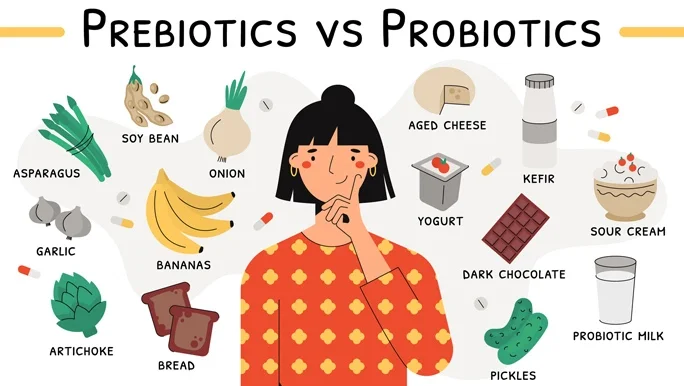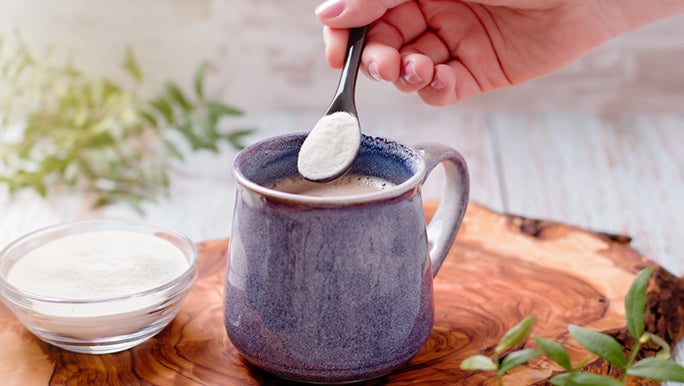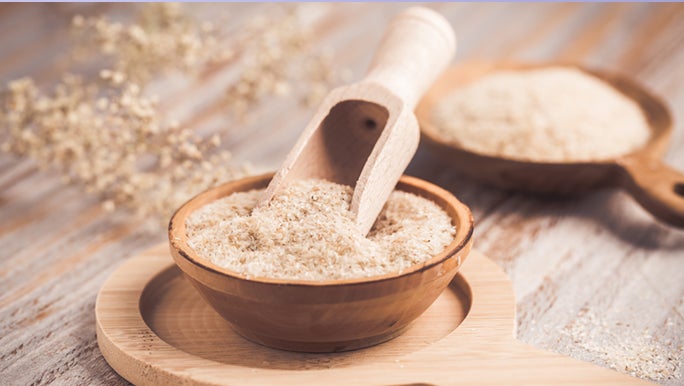What exactly are prebiotics?

Key Points
- Prebiotics are a type of non-digestible fibre that travel through your digestive system and act as food for probiotics
- Probiotics and prebiotics work together to keep your gut working how it should
- Your prebiotic FAQs answered
Curious about prebiotics?
No, that’s not a typo.
It’s also not one of those new-age terms that the health world likes to spring on us every now and then.
Prebiotics are their very own thing. They may appear similar to probiotics, but they actually have their own unique function.
Prebiotics are like little bacteria snacks that are essential for the good bacteria (or probiotics) in your gut. For good gut bacteria to flourish, they need prebiotics.


4 foods for gut health
Improve your gut health with some simple dietary changes. Here are four foods that you can eat for better gut health, gut bacteria balance & overall wellbeing.
For a closer look at this world within us, Registered Nutritionist Sarah Gray explains the steps to achieving good gut health.
What are prebiotics
You’ve probably heard that probiotics are good for your gut health. They’re the good bacteria that your gut knows and loves.
“Prebiotics, on the other hand, are a type of non-digestible fibre,” says Sarah. “They don't digest in the bowel easily, and so they can travel through your digestive system and act as food for the probiotics.”
So not only are they good for your gut, but they also act as food for your gut microbiome. Or bacteria snacks, as we like to call them.
Prebiotics can be found in a lot of common foods, like legumes and some fruit and veg, as well as nuts, seeds and whole grains.

Prebiotics are a type of non-digestible fibre that travel through your digestive system and act as food for probiotics.
What’s the difference between prebiotics and probiotics?
“Probiotics are active,” says Sarah. “They're good bacteria that stay alive in your gut to produce short-chain fatty acids. And because they're alive, they need food.”
This is where prebiotics come in. They act as that food.
Rather than looking at it as one versus the other, it’s better to see them as a partnership: to better support your gut health, they need to work together.
When they do work together, the potential health benefits can be quite powerful. Recent studies have observed the correlation/connection between gut health and mood, with some studies finding promising outcomes in the mental wellbeing space.
For more information on gut health, check out our explainers on:
- gut health
- the best foods for gut health
- how to increase good bacteria in your gut naturally
- fermented foods for gut health
- signs your gut health needs attention
- the gut-brain axis
- how stress affects gut health

A prebiotic collagen protein is likely just a combination of prebiotics and collagen proteins.
Your prebiotic FAQs answered
With all the questions surrounding prebiotics, here are the facts you need to know.
Can you take prebiotics and probiotics together?
Yes, because prebiotics and probiotics work best together. Prebiotics act as the food for the probiotics, keeping them alive so that they can work their magic in your digestive system.
Sarah says, “Taking a mixture of prebiotics and probiotics is known as synbiotics. This can be beneficial because you’re not only giving the body the good strains of bacteria, you're then giving it the food for that bacteria as well. This helps them do their job to the best of their ability.”
If you’d like to start taking probiotics, speak with your health professional about when to take them and which ones are right for you.
Are prebiotic collagen proteins helpful for gut health?

A guide to 8 of our favourite collagen powders
Although in its early stages, research into collagen powder is promising. Have you tried it yet?
A prebiotic collagen protein is likely just a combination of prebiotics and collagen proteins. The benefits of a product like this for gut health are the same as the benefits of prebiotics in general. Some people simply find it more convenient to take prebiotics and other supplements in one product.
What are some prebiotic foods?
Many fibre-rich foods fall into the category of prebiotics, but not all of them. The most well-researched prebiotics are dietary fibres such as inulin, galactooligosaccharides and fructooligosaccharides. These are found throughout a range of legumes, fruits, vegetables, nuts, seeds and whole grains. Sarah says, “If you're looking for products that contain these components, look for inulin in the ingredient list.”
Is milk a prebiotic?
Because milk contains oligosaccharides, it can be considered a prebiotic.
“That's not all it is though,” adds Sarah. “Obviously, milk's also got lots of other wonderful things, like calcium and protein.”
Is ginger a prebiotic?
No, ginger is not a prebiotic, but it is a great herb for improving digestion. This is why it’s often used as a herbal medicine.
Is spirulina a prebiotic?
Yes. Spirulina contains polysaccharides, which are prebiotic. It was also successfully used by NASA as a dietary supplement for astronauts on space missions, so we can’t say no to that!

For the ultimate prebiotic drink, mix in a teaspoon of psyllium husk with your favourite smoothie.
Is psyllium husk a prebiotic?
Yes. Psyllium husks are fibrous, which means they’re less easily digested. This ensures that they’re able to travel to the large intestine, where they become food for probiotic bacteria.
For the ultimate prebiotic drink, mix in a teaspoon of psyllium husk with your favourite smoothie.
Do prebiotics help with sleep?
They can. Sarah explains that “there’s such a thing as the gut-brain axis, where bacteria in the human gut can regulate the brain and behaviour.”
A recent study shows that in young healthy participants, self-reported sleep quality was positively linked to bacteria diversity in the gut.
Considering prebiotics are necessary for our gut bacteria to thrive, improvements in sleep quality can be a fantastic side effect. Who would have thought that taking prebiotics could help us sleep better?
Be kind to your gut
Although there are a lot of foods with naturally-occurring prebiotics, some people choose to use a prebiotic supplement.
For advice on gut health, simply have a free discovery call with a healthylife health professional.
And remember, make sure to ask your GP about any health concerns you may have.
Related:
Sarah Gray is both a Registered Pharmacist and Registered Nutritionist with a particular interest in health education and helping people to take small steps to big changes in their health journey. Sarah is a member of the healthylife Advisory Board.
Reviewed by the healthylife Advisory Board May 2022.